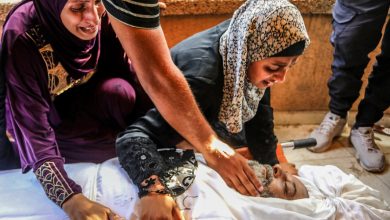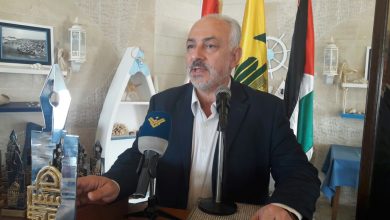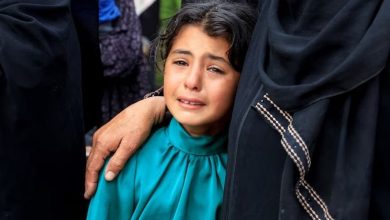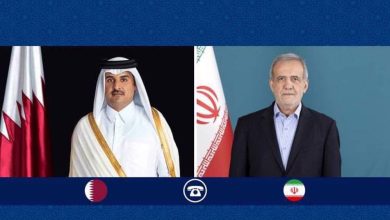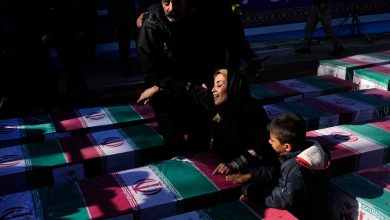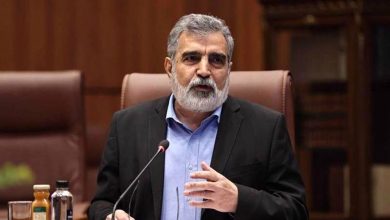Hamas affirms Palestinians’ refusal of any enforced relocation, emphasizing their commitment to remain in al-Quds
The Palestinian resistance group Hamas has reaffirmed the rejection by Palestinians of attempts by Israel, alongside its key ally the United States, to enforce the forced displacement of Palestinians from the Gaza Strip.

‘No migration except to al-Quds’: Hamas reiterates Palestinians rejection of forced displacement
In a statement issued on Wednesday, the Gaza-based organization reiterated its longstanding position, unequivocally declaring, “Migration is only permissible to the holy city of al-Quds.”
In a statement, it was affirmed that the Palestinian population is determined to remain resilient on their land, firmly upholding their rights while resolutely opposing any efforts aimed at forced or voluntary displacement.
In 1948, during a conflict heavily supported by Western powers, Israel took control of the western part of Jerusalem. Following this, the Israeli government began asserting its presence over significant areas of Palestinian and other regional territories.
During the 1967 conflict, the regime took control of the remainder of the city that includes al-Aqsa Mosque, Islam’s third most sacred site. Since that time, Tel Aviv has established approximately 12 unauthorized settlements in the eastern area, each housing hundreds of units for settlers.
Amid ongoing tensions, Palestinians continue to assert their aspiration for East Jerusalem to serve as the capital of their prospective independent state.
Hamas has reiterated the Palestinians’ determination to remain on their land and to remove Israeli forces from occupied areas, following the resumption of military actions by Israel. This development comes on the heels of what has been characterized as a genocidal campaign by Israel against Gaza, initiated in October 2023, with the stated aim of expelling the over two million Palestinians residing in the territory.
The conflict resulted in the deaths of approximately 48,000 Palestinians, predominantly women and children, from the start of hostilities until a ceasefire agreement with Hamas was enacted in January.
Following the implementation of the agreement, there have been consistent violations that have resulted in severe consequences for Palestinians.
On Tuesday, the regime escalated its military operations to previous levels, resulting in nearly 1,000 Palestinian casualties. The renewed offensive has disproportionately affected civilians, with women and children making up the majority of the fatalities.
Hamas has issued a statement urging accountability for Israeli Prime Minister Benjamin Netanyahu, describing him as a “war criminal.” The group called for Netanyahu to face consequences and withdraw certain actions, holding him responsible for any resulting outcomes. This demand follows the continuation of operations by the Israeli regime that Hamas has termed as genocidal.
Earlier this year, former US President Donald Trump declared his administration’s support for the regime’s objectives concerning the reduction of Gaza’s population. He remarked that the United States aimed to assert significant influence over the Palestinian region.
Hamas, along with allied regional resistance groups and a multitude of regional and international officials, have expressed concern over the strategies employed by Tel Aviv and Washington, deeming them impractical and counterproductive.
Netanyahu Faces Significant Political Turmoil
The movement highlighted ongoing threats of forced displacement against Gazans, reportedly made by Israel’s Minister of Military Affairs, Israel Katz. This rhetoric, they argued, underscores the profound crisis facing Prime Minister Benjamin Netanyahu.
Palestinian officials have affirmed that recent threats will not deter the resilience of the Palestinian people, nor will they shake their unwavering commitment to their land and national rights.
Hamas condemned a recent operation by the Israeli military, which saw its forces penetrate the Netzarim Axis, a strategic corridor situated in central Gaza. This area was seized by Israel following the onset of hostilities and is reportedly being used to support military operations in the northern and central regions of the territory.
The incident marks a significant breach of the ceasefire agreement, with the Zionist forces and their leadership being held accountable for the repercussions of the ground incursion into the central Gaza region, specifically the Netzarim Axis. This development is being described as a new, perilous escalation by involved parties.
The movement has reaffirmed its dedication to adhering to the established ceasefire agreement. It has urged mediators, specifically Egypt and Qatar, to fulfill their obligations in addressing and curtailing the ongoing violations and breaches.


